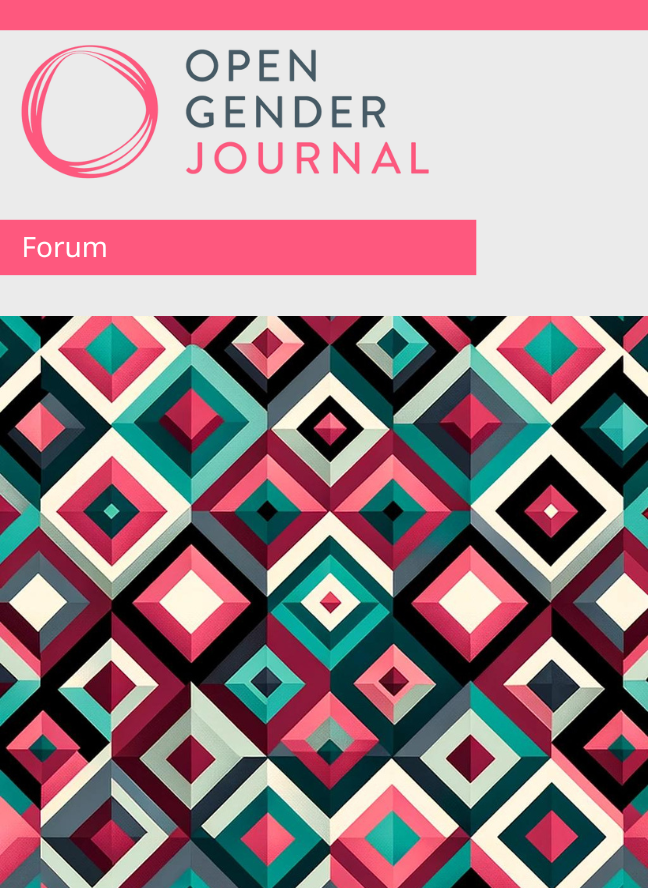On Utopian Anticipations and Real Interventions
A Comment on the Contradictory Legacy of Socialist Feminisms for the Present
DOI:
https://doi.org/10.17169/ogj.2024.336Keywords:
Care, Feminism, History, Reproduction, SocialismAbstract
Based on the anthology “Die Neuordnung der Küchen. Materialist-feminist designs for a better coexistence” (2023) by the kitchen politics collective, the article discusses the increased reference to socialist texts and the contradictory legacy of socialist utopias in the present. The authors are particularly interested in the challenge of classifying past utopian advances and real interventions and understanding their non-institutionalization, their re-breaking and their forgetting politically and historico-philosophically - or at least adressing the ambivalences. Is it about the failure of these attempts, the conditions of which must be understood in order to make today's perspectives of a better, solidary coexistence possible? Or is it about “grasping history as it was experienced in the moment in which it took place and capturing the messianic or utopian moments of these lost battles and failed social change” (kitchen politics 2023c, 89)? And what does this mean for current references?
References
Adamczak, Bini (2017): Beziehungsweise Revolution. 1917, 1968 und kommende. Berlin: Suhrkamp.
Gago, Verónica (2021): Für eine feministische Internationale. Wie wir alles verändern. Münster: Unrast.
Ghodsee, Kristen Rogheh (2019): Warum Frauen im Sozialismus besseren Sex haben und andere Argumente für ökonomische Unabhängigkeit. Aus dem Englischen von Richard Barth und Ursel Schäfer. Berlin: Suhrkamp.
kitchen politics (Hg.) (2023a): Die Neuordnung der Küchen. Materialistisch-feministische Entwürfe eines besseren Zusammenlebens. Münster: edition assemblage.
kitchen politics (2023b): Wie wir wohnen und leben wollen. Revisionen materialistisch-feministischer Utopien. In: kitchen politics (Hg.): Die Neuordnung der Küchen. Materialistisch-feministische Entwürfe eines besseren Zusammenlebens. Münster: edition assemblage, 7–46.
kitchen politics (2023c): Materialistische Utopien und (post-)sozialistischer Feminismus. Ein Gespräch am virtuellen Küchentisch. In: kitchen politics (Hg.): Die Neuordnung der Küchen. Materialistisch-feministische Entwürfe eines besseren Zusammenlebens. Münster: edition assemblage, 67–90.
Kollontai, Alexandra (2023): Familie und der kommunistische Staat. In: kitchen politics (Hg.): Die Neuordnung der Küchen. Materialistisch-feministische Entwürfe eines besseren Zusammenlebens. Münster: edition assemblage, 47–66.
Lerner, Gerda (1995): Die Entstehung des feministischen Bewußtseins. Vom Mittelalter bis zur ersten Frauenbewegung. Frankfurt: Campus Verlag.
Mills, Charles W. (1997): The Racial Contract. Ithaca: Cornell University Press.
Pateman, Carol (1988): The Sexual Contract. Cambridge: Stanford University Press.
Reuschling, Felicita (2023a): Familie im Kommunismus. Zur Abwertung reproduktiver Arbeit und der Fortschreibung kapitalistischer Geschlechterarrangements in der Sowjetunion. In: kitchen politics (Hg.): Die Neuordnung der Küchen. Materialistisch-feministische Entwürfe eines besseren Zusammenlebens. Münster: edition assemblage, 91-102.
Reuschling, Felicita (2023b): Motive des Scheiterns und Funktionierens. Eine kritische Geschichte utopischer Familienentwürfe. In: kitchen politics (Hg.): Die Neuordnung der Küchen. Materialistisch-feministische Entwürfe eines besseren Zusammenlebens. Münster: edition assemblage, 103–116.
Reuschling, Felicita (2023c): Eine feministische Perspektive für Berlin heute. In: kitchen politics (Hg.): Die Neuordnung der Küchen. Materialistisch-feministische Entwürfe eines besseren Zusammenlebens. Münster: edition assemblage, 175–189.
Trumann, Andrea (2002): Feministische Theorie. Frauenbewegung und weibliche Subjektbildung im Spätkapitalismus. Stuttgart: Schmetterling.
Wiesner, Maria (2022): Radikal selbstbestimmt. Ihrer Zeit weit voraus: was wir von Alexandra Kollontai lernen können. Hamburg: HarperCollins.

Downloads
Published
How to Cite
Issue
Section
License
Copyright (c) 2024 Constanze Stutz, Cari Maier

This work is licensed under a Creative Commons Attribution 4.0 International License.
All contributions in Open Gender Journal are published under the Creative Commons Attribution 4.0 International license. You may freely make use of the corresponding texts in accordance to the conditions of the license (License contract, generally understandable version). There is no exclusive transfer of usage rights ("copyright transfer"). Open Gender Journal does not charge authors any costs for publication (so-called Article Processing Charges, APC) or submission (so-called Submission Charges). Authors are encouraged to share their contributions in other places, such as repositories.












